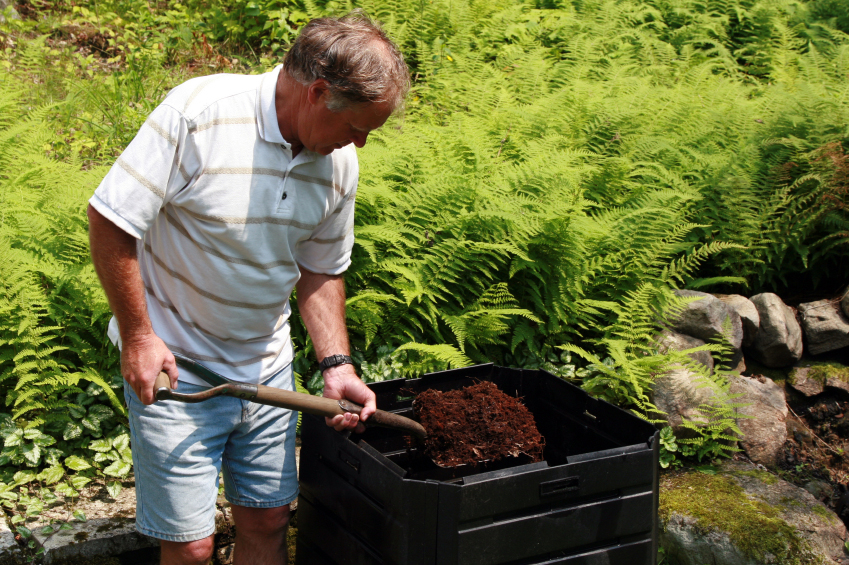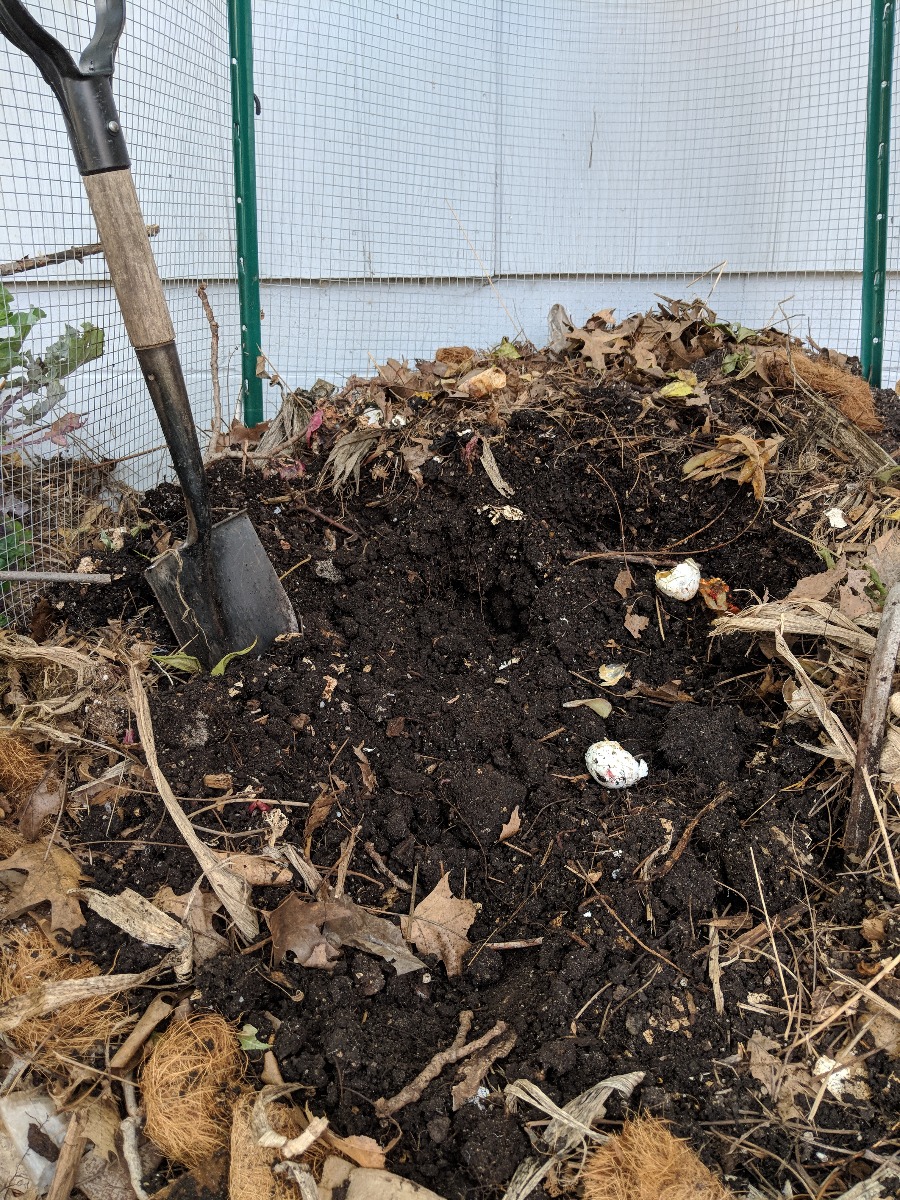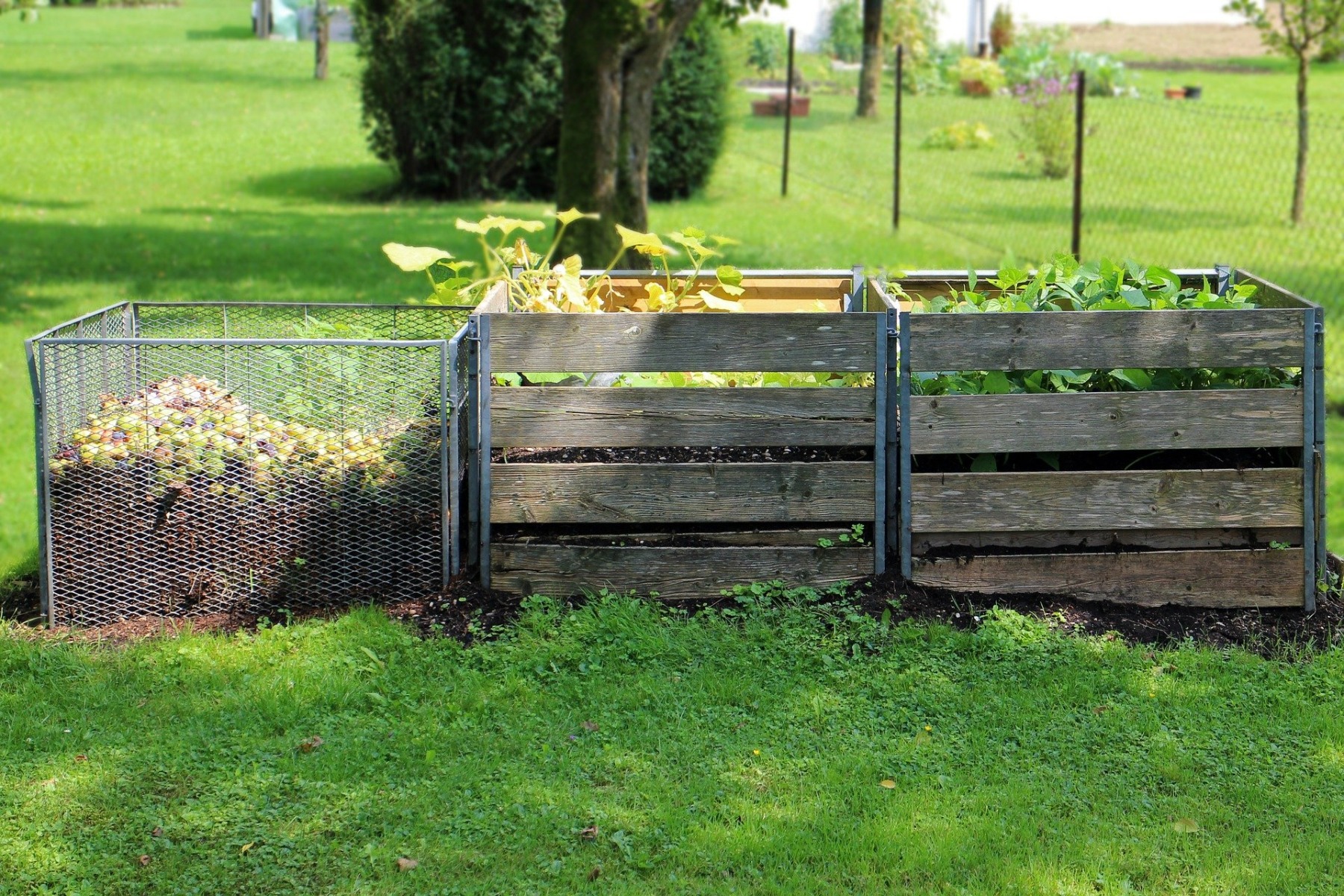Composting is simply the process of changing raw, organic materials, such as grass clippings, sod, leaves, tree trimmings and food scraps (excluding meat, fat or bones) into a rich, loamy soil conditioner through decomposition. It is accomplished by layering materials in a pile.

The speed of production depends on:
- What you put in it.
- Where it is located (sun or shade).
- The size and moisture level of the pile.
- How frequently you turn or manage it.
There is a lot of information out there about composting. Most of it states emphatically that you follow a specific process when layering and a strict regimen of turning and monitoring moisture and temperature. All organic material will decompose, eventually.
Adhering to the guidelines, simply speeds up the process. If you are not in a rush, just make a pile and add to it over the course of a year. At the end of the year, you will have compost at the bottom. If you do not want to wait that long, follow the guidelines below.

What to compost:
- Leaves
- Grass and lawn clippings, sod
- Hay, straw, pine needles
- Annual weeds (preferably before they go to seed)
- Garden plant and houseplant remains
- Woodchips, sawdust, fireplace ashes
- Shredded paper
- Tea, bags or loose leaf
- Coffee grounds and coffee filters
- Egg shells
- Food scraps excluding meat, fat and bones
What not to compost:
- Paint, chemicals, pesticides, herbicides
- Treated wood
- Diseased plants
- Annual weeds that have gone to seed
- Roots of perennial weeds
- Human or pet waste
- Meat scraps or bones
- Fats or grease
- Milk products
For Faster Compost Production
-
Balancing ingredients
The usual rule of thumb is 2-parts brown to 1-part green; meaning, 2-parts leaves, pine needles, dead plants to 1-part grass clippings and kitchen waste. The smaller the pieces, the faster they decompose. Use a compost starter to get the process going and ensure success.
-
Hot versus cold
Purists feel that hot piles are better. By adding more green material (like kitchen scraps) to the center of the pile, you can cause it to heat up more and thus speed up decomposition. The cold process is basically just creating a pile and letting nature takes its course. You can easily monitor the temperature of your pile with the use of a Compost Thermometer.
-
Small or large pile
Any size will work. Smaller piles are easier to turn and break down more quickly.
-
Moisture
Compost piles should have an earthy smell. If there is a strong odor of rotting, the pile is probably too wet. This can be solved by adding additional brown material or turning the pile to redistribute the overly wet parts. It is important, though, for the pile to be moist if you want to speed up compost production.
-
Bins versus pile
Bins hold a limited amount of materials, are usually black and thus attract heat and many come on stands that allow them to be tumbled, making compost maintenance a breeze. All these features speed up the process of decomposition. The cheapest and simplest method is to put the materials in a heavy-duty, black lawn bag. Tie it shut, punch several holes in it for the methane to escape, place in the sun and flip it every other day.
If you decide to use the pile option, consider constructing 2-3 bins. This can be as simple as creating a few rings with hardware cloth and stakes; or more elaborate by creating a couple of 3-sided boxes (open top and front) with recycled pallets or cement blocks. Get creative. The enclosures basically help contain the materials and make flipping and turning a little easier.

Image by Manfred Antranias Zimmer from Pixabay
-
Sun versus Shade
The more sun your pile or compost bin gets, the faster it will decompose.
Why should I bother?
- It’s free!
- Keeps the waste you produce out of the landfill.
- Produces the very best soil amendment you can add to your lawn or garden. It is high in nutrients, does not burn your plants and microorganisms produced in the decomposition process help plants flourish and be healthy.
- Compost can also be used as a mulch, keeping weeds in check and retaining moisture, thus reducing you water consumption.
- Compost is also one of the best clay soil busters.
REDUCE, REUSE, RECYCLE
Composting is the first step!
The experts at Gertens are always available to answer your questions!

